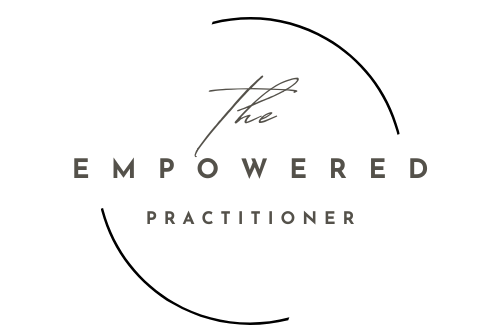
As a licensed acupuncturist and holistic health coach with over 25 years of experience, I've seen firsthand the importance of mastering differential diagnosis in Traditional Chinese Medicine (TCM). Today, I'm going to share my insights on how to become an investigative sleuth in your wellness business, especially when it comes to selecting essential oils and acupuncture points for your patients.
Why Differential Diagnosis Matters
In TCM, we recognize that each person is unique. Their symptoms, genetics, lifestyle, and eating habits form a distinct symphony that requires a tailored approach. Cookie-cutter solutions simply don't work. By mastering TCM differential diagnosis, you'll:
- Provide more effective treatment essential acupoint protocols
- Improve patient satisfaction and retention
- Stand out in your field as an expert practitioner
The Art of Observation: Using Your Senses
To conduct a thorough differential diagnosis, you need to engage all your senses:
- Visual: Observe posture, energy levels, and tongue appearance
- Auditory: Listen to the patient's words, tone of voice and breathing
- Touch: Use palpation techniques and pulse reading
- Intuition: Trust your gut feelings and instincts
Remember, it's not just about what patients say, but how they say it. Are they anxious and speaking quickly, or are they withdrawn and quiet? These observations provide valuable clues.

Asking the Right Questions: A System-by-System Approach
To get a comprehensive picture of your patient's health, follow this systematic approach:
- Chief Complaint: Listen carefully to the main reason for their visit
- Temperature: Assess if they run hot or cold
- Menstrual Cycle (for women): Inquire about regularity, flow, and symptoms
- Head-to-Toe Assessment:
- Headaches: Location, frequency, and quality of pain
- Heart: Chest pain, palpitations, blood pressure
- Digestion: Appetite, cravings, bloating, bowel movements
- Lungs and Immune System: Allergies, coughs, phlegm
- Urination: Frequency, color, and any difficulties
- Emotions: Understand their general emotional state and tendencies

Tongue and Pulse Diagnosis: The TCM Signature
After gathering information through questions, it's time to employ two key TCM diagnostic techniques:
- Tongue Diagnosis: Observe the tongue body, coating, and specific areas that correspond to different organs
- Pulse Diagnosis: Feel the pulse on both wrists, assessing strength, speed, and quality at different depths
These techniques take years to master, but they provide invaluable insights into a patient's overall health and specific imbalances.

Putting the Puzzle Together: Crafting a Treatment Plan
With all this information gathered, you can now start formulating a precise treatment plan. This is where the art of TCM truly shines. By considering all aspects of a patient's health, you can select the most appropriate:
- Acupuncture points
- Essential oils
- Lifestyle recommendations
Remember, the goal is to address the root cause, not just mask symptoms.

Expanding Your TCM Knowledge: The Metal Element
While we've covered the basics of differential diagnosis, it's important to continually expand your knowledge. For instance, understanding the Metal Element in Chinese Medicine can provide additional insights into your patients' health. If you're interested in learning more, check out my blog post on "3 Simple Metal Element of Chinese Medicine Tips" for valuable information that can enhance your practice.
Standing Out in Your Wellness Business
By mastering differential diagnosis and providing tailored treatments, you set yourself apart from other practitioners. This approach not only leads to better patient outcomes but also helps build your reputation as a go-to expert in your field.
✨ Key takeaways for success:
- Use all your senses during patient assessments
- Ask specific, targeted questions about each body system
- Master tongue and pulse diagnosis techniques
- Continuously expand your TCM knowledge
- Provide personalized treatment protocols

Take Your Practice to the Next Level
If you're ready to deepen your understanding of TCM and essential oil therapies, I invite you to explore my AcuOil Alchemy Certification course. This comprehensive program will teach you how to:
- Conduct thorough patient intakes
- Understand the energetics of essential oils
- Select the most effective acupuncture points
- Create powerful, personalized treatment protocols
Don't miss this opportunity to transform your practice and achieve better results for your patients.
Join Our Next Free Masterclass
Last week, I held a successful webinar titled "Revolutionize Your Wellness Business: The Game Changing Essential Oil Acu-Point Method." If you missed it, but are interested in learning more, join the waitlist for my next Free Masterclass session!
Stay Connected
For more insights on TCM, differential diagnosis, and holistic wellness, be sure to:
✔️ Check out the full video related to this blog post on my YouTube channel
✔️ Subscribe to our channel for regular updates and in-depth tutorials
✔️ Follow me on my Instagram account for tips and inspiration.
Remember, mastering differential diagnosis is an ongoing journey. By continually refining your skills and expanding your knowledge, you'll provide the best possible care for your patients and build a thriving, respected practice.
Join The Essential Oil Acupoint Masterclass Today
....................
Unlock the Power of Essential Oils & Acupoints to Amplify Client Results and Grow Your Income



